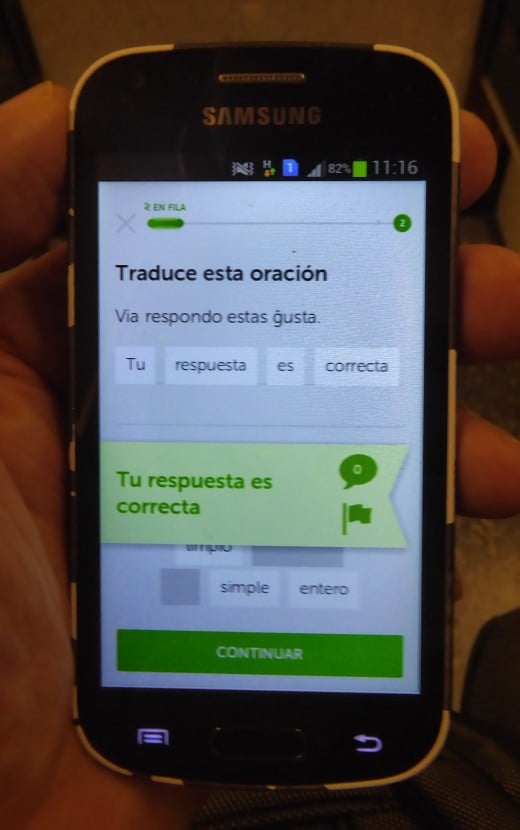Why Learning a Language Online Is the Better Option

The Internet Revolution and Languages
In this computer age, when your toddler cannot say his name yet but can access his favourite game on your phone, when your sibling spends so much time online that her laptop/phone seems like an added appendage–is it really surprising that even studying languages has gone high tech?
Learning a language was previously only seen in connection to brick-and-mortar buildings, textbooks, and flesh-and-blood teachers. With the internet revolution being reflected in almost every country in the world, alternate means of learning a language have been popping up all over the place.
You could find a grammar blog explaining the rules of the Present Tense, a podcast about basic words used in Portuguese, a virtual training institute offering lessons with teachers of your choice in the language of your choice, a website dedicated to explaining how punctuation works and more.
Here are a few reasons why learning a language online is often better than the alternative.
Reasons To Learn A Language Online:
-
You can come across videos, blogs, web applications, articles and institutes teaching almost any language, no matter how uncommon–Afrikaans, Swedish, Czech, Malay, Hebrew–take your pick. Many such sites, blogs, and articles offer advice on grammar rules, basic conversation and more without having to create an account with them, download any attachments/documents, or give up your privacy in any way.

-
Online classes (with a teacher/trainer) offer a bigger cost benefit than traditional learning. This does not mean they are all inexpensive or cheap, but with a little bit of online sleuthing, and by comparing the prices of various institutes, apps, and websites, you can find one that suits your budget. If you find a video or blog article providing you with the information you need, free of cost, then more power to you!
-
For those of you who prefer a personal touch while learning, plenty of virtual training institutes offer sessions with native speakers on a communication interface like Skype.com or Appear.in. Lessons with these speakers will familiarise you with the accent and pronunciation of the language chosen, simultaneously also teaching you the most common phrases and words used by natives.
-
You can take lessons from people across the world effortlessly, with just one click of the mouse. If you can access the internet on your smartphone/laptop/computer, you can learn whenever you choose–whether it is from the comfort of your home, or at the office during your lunch break.

-
Trying to book a class at the right time for you is never going to be a problem, as many virtual classes offer lessons round-the-clock. As for blogs, articles, videos, and podcasts, they can be viewed even in the middle of the night–if you so choose.
-
Videos and podcasts to help you learn grammar, games to learn vocabulary, pictorial representations of idioms and phrases, various columns and articles that serve as a guide as to what to do (or not to do) while learning said language–all this and more make learning online not only fun but also improve retention of the language.

-
Learning online acts as an equaliser, removing background, race, gender, nationality, and appearance from the equation. Because of the relative anonymity of the internet, unless you choose to reveal your identity, you can browse articles, attend classes and listen to podcasts safely, without being discriminated against.
-
Did you miss an important family event because you had to attend class? Is your boss annoyed because you reached work late after your class one too many times? Learning online usually allows a greater degree of flexibility, which in turn enables you to fulfill those personal and work commitments (and bonus: you avoid angering your boss).
Conclusion
The internet is a learner’s dream–easy availability of study material, an abundance of languages, even offbeat ones, teachers and trainers from different countries, easy on the pocket.
Generally, it is better to use a mixture of physical classes and online learning for optimum results. Keep in mind, though, that moderation is always the better option!
Rest your eyes (and your brain) while taking advantage of all that the online knowledge store has to offer!
Tips
-
Be careful while choosing a virtual institute to learn with. Check the authenticity of the institute before joining.
-
Certain virtual training websites offer varied prices for lessons with different teachers, depending on said teachers' popularity and student rating. These ratings can be very helpful while selecting a teacher to train with.
-
Some websites, blogs, and even articles might not be completely accurate. Always double-check the information on multiple websites and blogs before using it.
-
Create a list of blogs, articles, and websites that have helped you. You can revisit them for additional information in the future if needed.
-
Try out multiple websites and virtual training institutes to see which is the best fit for you. Some offer highly qualified trainers at affordable prices, some provide well-sourced content, and others might teach that language that no one else does–use different sites on a trial basis and continue with the one that suits your purposes best.
Your Opinion
Have you ever tried your hand at online learning? What was your experience like?
Write to me in the comment section below.
© 2018 Sanjana Shukla








